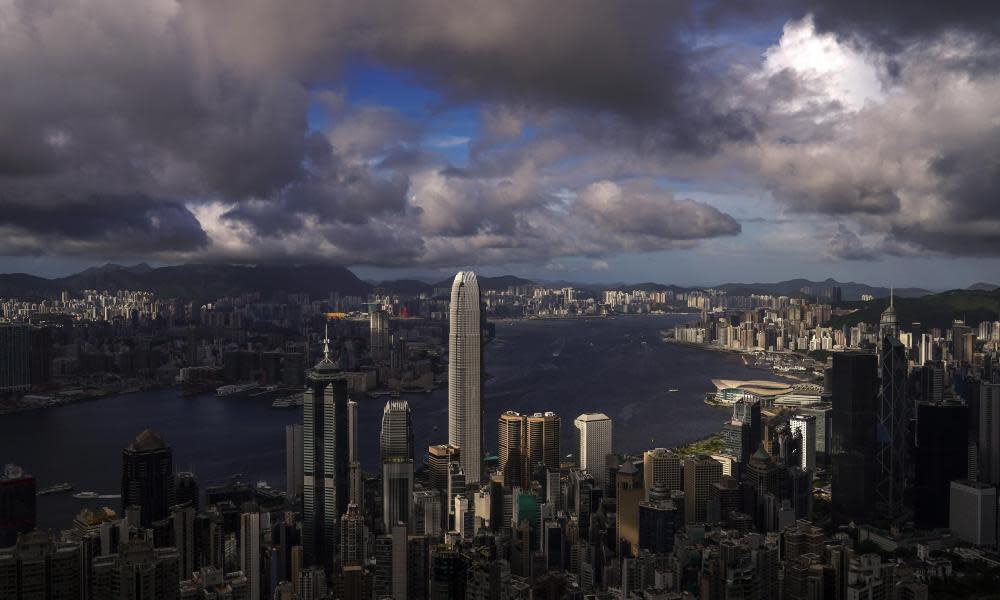'This is intolerable': fearful Australians in Hong Kong hasten plans to leave city

Australian expats in Hong Kong are feeling jittery about their future after Beijing imposed a new national security law that could lead to foreigners being arbitrarily detained. They say the move has hastened their plans to leave the financial hub amid calls from their government for its citizens to “reconsider” their need to stay there.
The national security law passed in Beijing and enacted in Hong Kong on 1 July punishes crimes of secession, subversion, terrorism and collusion with foreign forces with up to life in prison. It applies to permanent residents and non-residents in Hong Kong who breach the law in the territory, along with anyone accused of violating the law regardless of their nationality and where the alleged crime took place – so foreigners could be arrested on arrival in Hong Kong. National security cases can also be sent to Chinese courts for trial.
Related: Australia's Hong Kong intervention was hardly strident but that didn't matter to China
The law has been criticised by legal experts for its broad and vague definitions. Within days of passing the law, the Hong Kong authorities have issued warnings that some slogans and flags waved in defiance are deemed pro-independence and secessionist, and could violate the legislation. At least 10 people were arrested at a protest on 1 July for possessing materials deemed “subversive”.
The Australian government updated its travel advice for Hong Kong on Thursday to warn that its citizens “may be at increased risk of detention on vaguely defined national security grounds”. The warning was the second escalation in travel advice for the former British colony in a week. There are up to 100,000 Australians living in Hong Kong.
“If you’re concerned about the new law, reconsider your need to remain in Hong Kong,” the travel advice said.
Several Australians in the Hong Kong business community declined to talk to the Guardian, fearing that their opinions on the law will jeopardise their prospects in the city. Those willing to speak insisted on anonymity, also fearing their lives could be affected.
They said the new measures have prompted them to make plans to leave because they feel insecure about living in the city without the safeguards of civil liberties and the rule of law.
A former secondary school teacher who has lived in Hong Kong for more than a decade said although she loved the city and its people: “I don’t want to live somewhere where the walls have ears.”
She said she would hesitate to stay in a place where people have to restrict their freedoms as a way to survive. “I don’t want to self-censor,” she said. “This is intolerable. Any government which removes freedom is in grievous contravention of human dignity.”
A company director in corporate financial management, who has lived in Hong Kong for 13 years and obtained permanent residence, said he was concerned about how businesses and individuals would be affected under the sweeping law, especially when relations between Canberra and Beijing are tense.
As a parent, he was also concerned that the indoctrination of ideology would be reinforced in education. The law stipulates that national security education would be promoted through schools and in other realms.
Related: 'We cried a lot': Hong Kong family torn apart as protester seeks asylum in Australia
“We are quite anxious but we’ll see how things will unfold,” he said. “If we keep seeing arrests and internet restrictions intensify, we’ll take a more hardlined view.”
Another Australian who has lived in Hong Kong for 33 years said he found China’s move deeply “unsettling” and “disturbing”.
“I’ve always lived in places where there is the rule of law. Having to live in a place where rights are not guaranteed is worrying,” said the magazine editor, who was once detained at a Chinese border for 20 minutes during a trip for unknown reasons. “You always feel something weird could happen.”
“I love Hong Kong. It’s a safe city, it’s really convenient – but I’m not sure if it will stay that way. This law is very damaging.”


